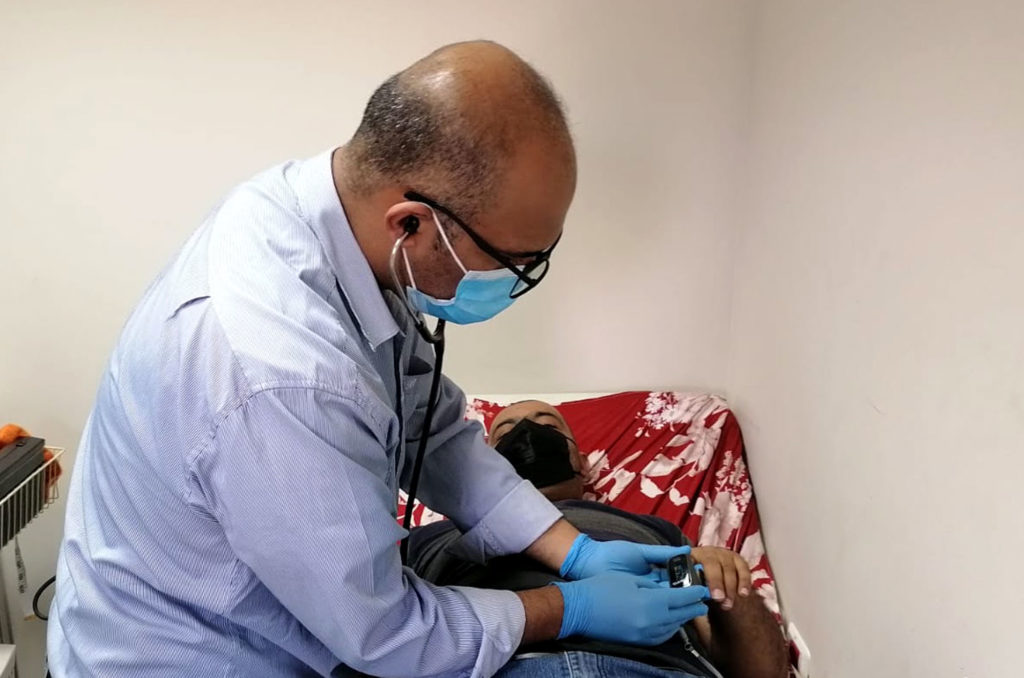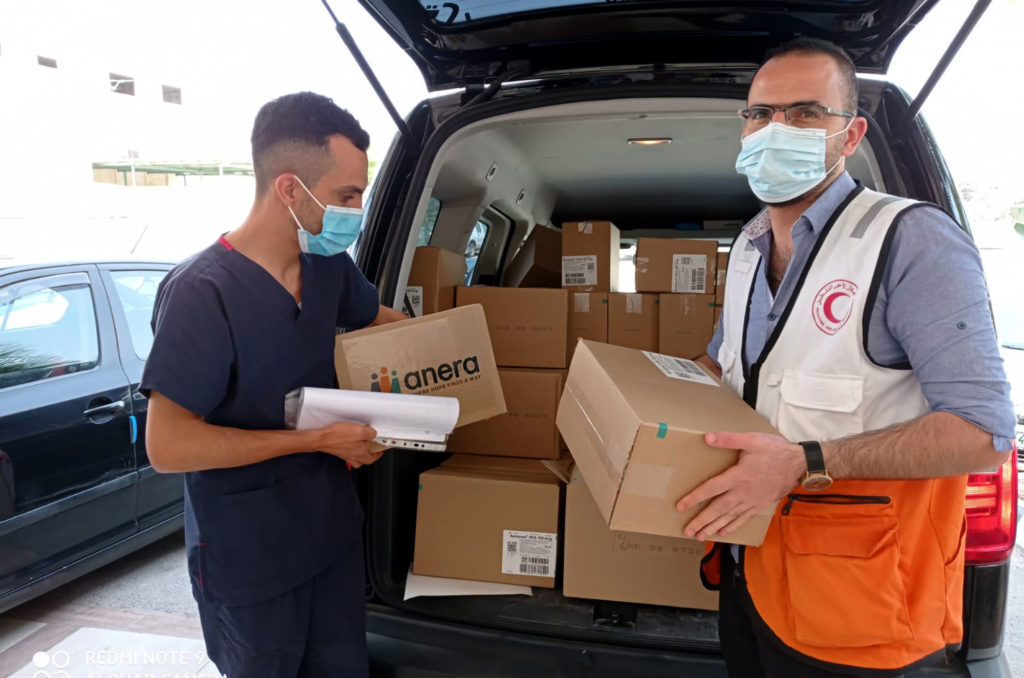HEALTH
Helping Asthma Patients in Dura Breathe
Nov, 2020
“I am so grateful for the donation because I could not afford [the inhaler] and I would not have survived without it.” — Ahmed
When Ahmed walked into Dr. Hassan Alhoroub's office, he was breathless. Ahmed’s lungs felt tight and he was not sure what was happening to him. Hassan works at the Palestinian Red Crescent clinic in Dura, a village in the Hebron Governorate of Palestine’s West Bank. After an examination, he diagnoses Ahmed with asthma and prescribes an inhaler, which the clinic provides at no cost.

Like many villagers in the area, Ahmed relies on charitable clinics for treatment. For the last 12 years, the Palestinian Red Crescent clinic has been in Dura, actively reaching out to patients in need, particularly those with chronic diseases who can’t afford medicine. Dr. Alhoroub volunteers at the clinic, giving his time to help patients receive healthcare without charge.

“We usually call our patients and open a file for them so we can closely follow up on their cases. During winter, seasonal colds and breathing infections are common.” — Dr. Alhoroub
Direct Relief recently provided a generous medical donation of 4,000 inhalers. Anera distributed the inhalers to four clinics and hospitals in the West Bank.

Dr. Alhoroub says of the donated inhalers,

“We are thankful for the support. The majority of our patients wouldn’t have the money to purchase them.”
The physician explains that asthma is a lung disease that causes breathing problems due to a tightening and inflammation of the airways, usually when exposed to airborne elements like pollen or smoke. A patient may develop asthma due to hereditary factors or environmental irritants, or a combination of causes.
Ahmed is just relieved to be able to breathe again.

“I am so grateful for the donation because I could not afford [the inhaler] and I would not have survived without it.”
Many patients like Ahmed rely on donated medicines for treatment. Clinics like this one, that provide medicines at no charge to vulnerable communities, ensure that patients can spend their limited incomes on food or school supplies for their children.

